Japan’s corporate landscape features a powerful mix of automotive giants, global trading houses, energy firms, tech conglomerates, and retail leaders. These companies have demonstrated exceptional scale in FY 2024
Top 100 Companies in Japan by Sales in 2024
1. Toyota ($305.78 billion)
Toyota (TM), with $305.78 billion in revenue in 2024, remains a global leader in the automotive industry. Known for its operational efficiency and innovation in hybrid and electric vehicle technology, Toyota employs over 370,000 people worldwide and operates in more than 170 countries. Its best-selling models like the Corolla, Camry, and RAV4 play a major role in its financial success. The company also continues to invest heavily in autonomous driving and mobility solutions, reinforcing its position as a future-focused mobility giant.
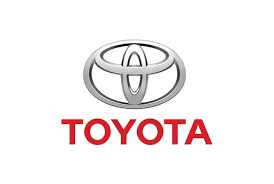
2. Honda ($142.45 billion)
Honda (HMC), generating $142.45 billion in revenue in 2024, is a major player in the global automotive and motorcycle markets. The company is celebrated for its reliable cars, motorcycles, and power equipment, serving millions of customers worldwide. Honda employs around 215,000 people and operates manufacturing facilities across Asia, the Americas, and Europe. Its diversified product lineup, including popular models like the Civic and Accord, along with a growing focus on electric vehicles and robotics, drives its steady financial growth and innovation leadership.

3. Mitsubishi Corporation ($133.59 billion)
Mitsubishi Corporation (8058.T), with $133.59 billion in revenue in 2024, is one of Japan’s largest and most diversified trading companies. It operates across a wide range of sectors including energy, metals, machinery, chemicals, food, and finance. Employing over 80,000 people worldwide, Mitsubishi plays a crucial role in global supply chains and resource development. Its strong focus on sustainable growth and strategic investments in renewable energy and infrastructure projects helps drive steady revenue growth and long-term resilience.

4. Itōchū Shōji ($95.76 billion)
Itōchū Shōji (伊藤忠商事株式会社), listed on the Tokyo Stock Exchange under ticker 8001.T, is one of Japan's leading sogo shosha—general trading companies. In the fiscal year ending March 31, 2024, Itōchū reported a revenue of $95.76 billion USD (¥14.03 trillion JPY), marking a 0.6% increase from the previous year. Headquartered in Osaka and Tokyo, Itōchū operates across diverse sectors, including textiles, machinery, metals, energy, chemicals, food, and ICT. The company is also involved in real estate and financial services. Notably, Itōchū holds significant stakes in major brands such as FamilyMart, Dole Food Company, and Converse. It also has partnerships with companies like Isuzu and Mazda in the automotive sector.
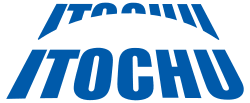
5. ENEOS Holdings ($94.55 billion)
ENEOS Holdings (5020.T), with $94.55 billion in revenue in 2024, is Japan’s largest oil and metals conglomerate. The company operates across petroleum refining, natural gas exploration, metals production, and renewable energy sectors. Despite a slight revenue decline compared to the previous year, ENEOS remains a key player in energy markets, generating most of its sales from petroleum products and metals. The company employs thousands globally and continues to expand its footprint in clean energy, investing heavily in sustainability and carbon reduction initiatives. ENEOS also holds a significant stake in JX Advanced Metals, a leading supplier of materials for semiconductor manufacturing, strengthening its position in high-tech industries.

6. Nippon Telegraph and Telephone Corporation ($91.18 billion)
Nippon Telegraph and Telephone Corporation (NTT), listed on the Tokyo Stock Exchange under ticker 9432.T, reported $91.18 billion in revenue for the fiscal year 2024 .
NTT is a leading Japanese telecommunications company headquartered in Tokyo. It operates through various subsidiaries, including NTT East, NTT West, NTT Communications, NTT Docomo, and NTT Data. The company provides a wide range of services, such as fixed-line and mobile telephony, broadband internet, digital television, and IT solutions. In addition to its core telecommunications services, NTT is involved in research and development, focusing on areas like network infrastructure, artificial intelligence, and smart cities. The company has made significant investments in global expansion and technological innovation to maintain its competitive edge in the rapidly evolving telecom industry.

7. Mitsui & Co ($91.00 billion)
Mitsui & Co., Ltd. (Mitsui Bussan), with $91.00 billion in revenue in 2024, is one of Japan’s largest and most diversified general trading companies. Operating globally across sectors such as energy, metals, chemicals, machinery, lifestyle, and information technology, Mitsui maintains a strong presence in over 130 offices worldwide. Despite a 6.8% revenue decline compared to the previous year, the company remains financially robust with a net income of approximately ¥1.06 trillion. Mitsui continues to invest strategically in renewable energy, digital infrastructure, and supply chain innovation, aiming for sustainable growth and adaptation to evolving market demands.

8. Sony Group Corporation ($90.14 billion)
Sony Group Corporation reported $90.14 billion in revenue for the fiscal year 2024, marking a slight increase compared to the previous year. The company operates through diverse segments including gaming and network services, music, pictures, imaging and sensing solutions, electronics products, and financial services. Its PlayStation brand remains a major revenue driver, with gaming revenue increasing significantly. Sony also benefits from strong music and film divisions, and growing demand for its image sensors. Despite some challenges in its financial services segment, Sony continues to expand its entertainment portfolio through acquisitions like Bungie and Crunchyroll. The company announced a substantial share buyback plan and plans to spin off most of its financial services unit. Looking ahead, Sony forecasts a modest revenue decline in 2025 due to expected tariffs but remains focused on innovation and expanding its global reach.

9. Nissan Motor Co ($86.45 billion)
Nissan Motor Co., Ltd. reported $86.45 billion in revenue for the fiscal year 2024, showing a slight decrease from the previous year. However, the company faced a significant drop in profitability, with operating income falling by 86.6% and net income plunging by 98.4%. In response, Nissan launched its “Re:Nissan” recovery plan, which includes reducing global production capacity by 20%, cutting 20,000 jobs worldwide, consolidating manufacturing plants from 17 to 10 by 2027, and pausing development on certain future vehicle models. These measures aim to save approximately $3.4 billion over two years and return Nissan to profitability by fiscal year 2026. Despite current challenges, Nissan remains focused on restructuring and improving operational efficiency to regain its competitive position in the global automotive market.
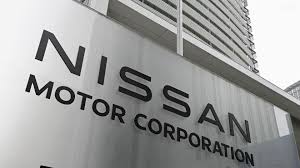
10. Japan Post Holdings ($81.58 billion)
Japan Post Holdings reported $81.58 billion in revenue for the fiscal year 2024, showing a slight decline from the previous year. Despite this, the company’s net income increased by 38%, reaching approximately $1.8 billion, driven largely by strong performance in its banking and insurance subsidiaries. Japan Post Holdings operates through several key businesses, including postal and logistics services, banking, and life insurance. The company has been actively restructuring to improve efficiency, including a significant share buyback of about $2.4 billion and plans to reduce its ownership stake in Japan Post Bank to enhance the bank’s operational flexibility. Moving forward, Japan Post Holdings aims to maintain profitability and strengthen its financial position while enabling more autonomous operations within its banking division.

11. 7-Eleven ($79.79 billion)
7-Eleven, Inc., a subsidiary of Seven & I Holdings, reported $79.79 billion in revenue for fiscal year 2024, despite facing a 2.7% decline in same-store sales in the U.S. The company’s operating income fell 21% to about $3.7 billion, and net income declined 10% to around $1.5 billion. In response to financial pressures and an acquisition bid from Alimentation Couche-Tard, Seven & I Holdings is restructuring by creating York Holdings to manage non-core subsidiaries, including supermarkets and Denny’s restaurants. Additionally, it plans an IPO for its North American 7-Eleven operations by 2026 and has launched a share buyback program worth up to $13 billion. These steps aim to focus the company’s efforts on its core convenience store business and improve shareholder value.
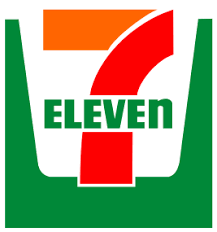
12. Dai-ichi Life Holdings ($71.38 billion)
Dai-ichi Life Holdings reported $71.38 billion in revenue for fiscal year 2024, marking a 10.7% increase from the previous year. The company operates across three main segments: domestic insurance, overseas insurance, and other businesses such as asset management. With total assets valued at approximately $456 billion and a workforce of around 61,000 employees, Dai-ichi Life continues to expand its global footprint. Notably, it acquired a significant stake in Benefit One Inc., a provider of employee benefits and wellness services, and strengthened its presence internationally by acquiring New Zealand’s Partners Life. The company anticipates continued growth through increased investment income and strategic acquisitions, aiming to enhance profitability in the coming years.
13. Toyota Tsusho Corporation ($69.53 billion)
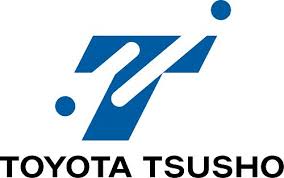
Toyota Tsusho Corporation reported revenue of approximately $69.53 billion for the fiscal year ending March 2024, marking a 1.18% increase from the previous year. The company achieved a 13.6% rise in operating profit, reaching about $3.1 billion, and net profit attributable to owners increased 16.6% to roughly $2.3 billion. Business segments showed mixed results: profits in metals declined due to lower market prices, while global parts and logistics, mobility, chemicals, electronics, food, and African operations saw significant growth. Toyota Tsusho also expanded its portfolio by acquiring Elematec Corporation, enhancing its offerings in electronic materials, and launched renewable energy projects in Africa. Looking ahead, the company aims to further grow profits by focusing on high-potential sectors like mobility, electronics, and renewable energy.
14. Hitachi ($66.28 billion)
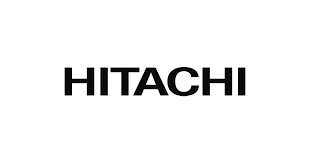
Hitachi Ltd. reported revenue of approximately $66.28 billion for the fiscal year ending March 2024, representing a 6% decline compared to the previous year. Despite this, net income rose by 4% to about $4.3 billion, supported by a 29% increase in adjusted operating income, reaching roughly $6.5 billion. The company’s key business segments include Digital Systems & Services, Green Energy & Mobility, and Connective Industries, all showing solid growth—especially in digital transformation solutions and power systems. Hitachi has also entered a major partnership with Microsoft to integrate generative AI into its Lumada platform, aiming to boost innovation and efficiency. Looking ahead, Hitachi forecasts revenue growth to $67.5 billion in fiscal 2025, with continued focus on AI, renewable energy, and industrial automation.
15. Aeon ($65.54 billion)

Aeon Co., Ltd. reported total revenue of approximately $65.54 billion for the fiscal year ending February 2025, showing a slight 1.1% decline compared to the previous year. Despite this, the company’s operating profit increased by 6.1% to about $1.6 billion, and net income grew 19.2% to around $410 million. Aeon’s retail business continues to expand, driven by a growing range of private label products and improvements in customer experience. Its financial services segment also performed well, boosted by consolidation of payment businesses and a rise in AEON Pay memberships. International operations contributed significantly, with revenues rising nearly 8%, especially in markets like Malaysia and Vietnam.
16. Nippon Steel ($60.51 billion)

Nippon Steel Corporation reported revenue of approximately $60.51 billion for the fiscal year ending March 2025, showing a slight decrease from the previous year’s $60.92 billion. Despite the stable revenue, net profit fell sharply by 36% to around $2.4 billion due to challenging market conditions and higher costs. The company produced about 39.6 million metric tons of crude steel, down 2.1% year-over-year. Nippon Steel is currently pursuing a major $14.9 billion acquisition of U.S. Steel, although the deal is under regulatory review for national security concerns. Looking ahead to fiscal 2026, the company forecasts net profit to decline further by 43%, reflecting ongoing global steel market pressures and increased tariffs. Despite these challenges, Nippon Steel remains one of the world’s largest steel producers, ranked fourth globally, and continues to invest in growth and innovation to strengthen its market position.
17. Idemitsu Kosan ($59.48 billion)

Idemitsu Kosan Co., Ltd. reported revenue of approximately $59.48 billion for the fiscal year ending March 2025, marking a 5.4% increase compared to the previous year. However, net income declined sharply by 55% to about $700 million, reflecting challenges in profit margins which dropped from 2.6% to 1.1%. The company operates six oil refineries in Japan and one in Vietnam, with a combined capacity of 1.145 million barrels per day. Its retail network includes over 6,300 service stations across Japan under the Apollo brand. Idemitsu also produces petrochemical products such as ethylene, propylene, and styrene through facilities in Japan and Southeast Asia. In response to global energy transition trends, the company is investing in renewable energy sources including solar, wind, and thermal power with a total installed capacity of 0.5 GW. It aims for carbon neutrality by 2050 and is exploring biofuel production from non-food crops in partnership with Mitsubishi Corporation.
18. Panasonic Holdings ($57.97 billion)

Panasonic Holdings Corporation reported revenue of approximately $57.97 billion for the fiscal year ending March 2024, showing a slight decline from the previous year’s $59.64 billion. Despite this, net income surged by 67% to about $3.05 billion, supported by a 25% increase in operating profit to roughly $2.47 billion. The company’s business segments showed mixed results: Lifestyle sales remained stable with an 18% rise in operating profit, while Automotive sales dropped 15%, partly due to the divestment of Panasonic Automotive Systems. Meanwhile, Connect and Industry segments saw sales and profits grow, driven by demand for avionics and products for generative AI servers. Energy sales fell 9%, but operating profit rose thanks to growth in energy storage systems for data centers.
19. Marubeni ($49.46 billion)
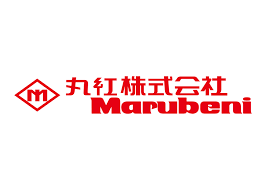
Marubeni Corporation reported revenue of approximately $49.46 billion for the fiscal year ending March 2024, marking a 21% decline compared to the previous year. Despite this drop in sales, the company achieved a net profit of around $3.2 billion, showing resilience amid challenging market conditions. Marubeni operates as a diversified general trading company with business segments including lifestyle and food, metals and minerals, energy and chemicals, power and infrastructure, finance and real estate, aerospace, mobility, and IT solutions. With a global workforce of over 50,000 employees and 130 offices worldwide, Marubeni maintains a strong international presence. The company is focused on strategic investments, particularly in power trading and the food sector, while planning divestments primarily from infrastructure and finance businesses. It also aims to return approximately 40% of its projected profits to shareholders.
20. DENSO ($48.75 billion)

DENSO Corporation, a leading global automotive components supplier based in Japan, reported revenue of approximately $48.75 billion for the fiscal year ending March 2025, reflecting an 11.6% increase compared to the previous year. The company’s operating profit rose by 4.3% to about $3.5 billion, while net profit attributable to owners increased by 5.5% to around $2.8 billion. With a global workforce of approximately 158,000 employees across 187 subsidiaries, DENSO operates extensively in Japan, North America, Europe, and Asia. The company’s revenue growth was particularly strong in North America and Japan, driven by robust demand for automotive parts and technologies. DENSO continues to innovate in areas such as advanced vehicle electronics, electrification, and mobility solutions, reinforcing its position as a critical supplier in the global automotive industry.
21. Tokio Marine ($48.3 billion)

Tokio Marine Holdings is one of Japan’s largest insurance groups, reporting revenue of approximately $48.3 billion for the fiscal year ending March 2024. The company achieved strong financial results driven by solid underwriting performance and growth in international operations. Tokio Marine’s adjusted net income reached about $7.9 billion, supported by accelerated sales of business-related equities. The company operates across diverse segments, including domestic non-life insurance, domestic life insurance, and international insurance, with notable profit growth in non-life and international divisions. Employing around 43,000 people worldwide, Tokio Marine maintains a robust global presence and continues to strengthen its market position through diversified insurance and financial services.
22. Sumitomo ($47.12 billion)
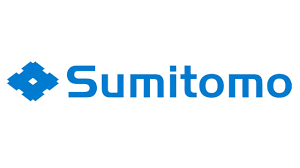
Sumitomo Corporation, a leading Japanese general trading company, reported revenue of approximately $47.12 billion USD for the fiscal year, 2024. The company achieved a strong net profit of about $3.6 billion USD, reflecting a significant 45% increase compared to the previous year. Earnings per share also improved notably, rising from ¥315.87 to ¥463.66. Sumitomo operates through a diverse range of business segments including steel trading and processing, automotive components, transportation and construction systems, urban development, media and digital content, lifestyle-related businesses, mineral resources, chemical solutions, and energy transformation, with a growing focus on renewable energy projects. With operations spanning over 40 countries worldwide, Sumitomo continues to expand its global presence, particularly in emerging markets.
23. SoftBank Group ($46.10 billion)

SoftBank Group Corp. reported strong financial results for the fiscal year, 2024, with a revenue of approximately $46.10 billion USD. The company achieved a remarkable turnaround, posting a net income of about $7.8 billion USD, recovering from a loss in the previous year. SoftBank’s net asset value nearly doubled to around $185 billion USD, driven by gains in its diverse investment portfolio. The company has intensified its focus on artificial intelligence, committing up to $40 billion USD to OpenAI through its Vision Fund 2 and co-investors, alongside acquiring the U.S.-based semiconductor firm Ampere Computing for $6.5 billion USD to strengthen its AI infrastructure. SoftBank is also leading the massive $500 billion Stargate data center project in the U.S., aimed at building next-generation AI infrastructure.
24. Mitsubishi UFJ Financial Group ($44.40 billion)

Mitsubishi UFJ Financial Group (MUFG), Japan’s largest financial institution, reported revenue of approximately $44.40 billion USD for the fiscal year, 2024. The company achieved a record annual net profit of about $11.23 billion USD, marking a 25% increase compared to the previous year. Despite a 41% decline in net profit during the January–March 2025 quarter, MUFG's consolidated gross profits rose significantly, driven by higher interest rates and strategic asset sales. Headquartered in Tokyo, MUFG operates over 2,700 locations across more than 50 countries, offering a broad range of financial services including banking, trust banking, securities, credit cards, consumer finance, asset management, and leasing. The company has been actively pursuing digital transformation by integrating its financial services into unified platforms to enhance customer experience and operational efficiency. Additionally, MUFG is committed to sustainability, publishing annual climate and sustainability reports aligned with global environmental goals.
25. MS&AD Insurance ($44.03 billion)

MS&AD Insurance Group Holdings, a leading Japanese insurance conglomerate with subsidiaries including Mitsui Sumitomo Insurance and Aioi Nissay Dowa Insurance, reported revenue of approximately $44.03 billion USD for the fiscal year ending March 31, 2024. The company is also investing heavily in digital transformation to enhance customer experience and operational efficiency. Committed to sustainability, MS&AD integrates environmental, social, and governance (ESG) principles into its strategies. With a solid financial foundation and focus on innovation, MS&AD Insurance Group is well-positioned to thrive in the evolving global insurance market.
26. KDDI ( $39.25 billion)

KDDI Corporation, a leading Japanese telecommunications company, reported revenue of approximately $39.25 billion USD for the fiscal year, 2024. Despite a 1.5% increase in revenue, operating income declined by 10.7%, mainly due to lease provisions and impairment costs. The company’s net income stood at about $4.21 billion USD, with total assets valued near $94.6 billion USD. KDDI is actively expanding its digital services portfolio, including cloud computing, IoT, and AI solutions, while committing to sustainability goals such as achieving carbon neutrality. With around 61,288 employees, KDDI also announced a substantial share buyback program to enhance shareholder value. The company continues to focus on innovation and sustainability to maintain its position in the evolving telecommunications market.
27. Suzuki Motor ($36.60 billion)

Suzuki Motor Corporation reported a revenue of approximately $36.60 billion USD for the fiscal year, 2024, marking an 8.7% increase from the previous year. The company achieved a net income of around $2.7 billion USD, with operating profit surging by nearly 34% due to strong global automotive sales. Suzuki employs over 72,000 people and operates more than 35 production facilities in 23 countries, with a presence in 192 nations worldwide. In November 2024, it introduced its first mass-production battery electric vehicle, the e VITARA, with manufacturing to begin in India in 2025. Suzuki is also advancing toward carbon neutrality, investing in sustainable technologies as part of its long-term environmental strategy.
28. Mitsubishi Electric ($35.81 billion)

Mitsubishi Electric Corporation reported revenue of approximately $35.81 billion USD for the fiscal year ending March 2025, reflecting a 5% increase from the previous year. The company recorded an operating profit of ¥391.8 billion, with net profit rising to ¥324.0 billion, showing strong performance across key business segments. Mitsubishi Electric’s core areas—such as energy systems, factory automation, and HVAC solutions—contributed significantly to this growth, while demand in the Chinese automotive sector remained a challenge. The company employs tens of thousands globally and is recognized for its innovation in both industrial and consumer technologies. It continues to prioritize sustainability, aiming for carbon neutrality and improving energy efficiency across its products and operations.
29. Daiwa House Industry ($35.43 billion)
Daiwa House Industry reported revenue of approximately $35.43 billion USD in 2024, reflecting solid growth driven by its diversified operations in residential, commercial, and logistics construction. The company saw particular strength in its logistics and corporate facilities segment, which recorded a notable increase in both sales and operating income. Daiwa House also expanded its international presence, especially in the U.S. and ASEAN regions, where it focuses on business and industrial developments. With over 40,000 employees, the company combines large-scale development capabilities with a strong commitment to sustainability. Its strategic investments in energy-efficient buildings and smart infrastructure continue to position it as a leader in Japan’s real estate and construction sectors.

30. JFE ($35.29 billion)
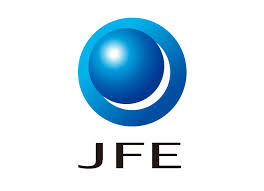
JFE Holdings, one of Japan’s largest steel manufacturers, recorded approximately $35.29 billion USD in revenue in 2024. The company operates across steel production, engineering, and trading, with a significant presence in both domestic and global markets. Despite facing pressure from declining steel demand and rising competition, JFE is investing heavily in overseas expansion, including strategic partnerships in India and North America. It employs tens of thousands of workers and is transitioning toward cleaner steelmaking processes, such as electric arc furnaces, to meet environmental targets. These sustainability efforts are part of its long-term vision to remain competitive and profitable in the evolving industrial landscape.
31. Sumitomo Mitsui Financial ($33.64 billion)
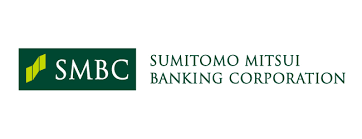
Sumitomo Mitsui Financial Group (SMFG), one of Japan’s largest banking institutions, reported revenue of approximately $33.64 billion USD in 2024. The group experienced a strong year with a 22% increase in net income, reflecting robust growth across its domestic and international banking operations. SMFG employs about 124,000 people worldwide and has been investing heavily in digital transformation, including integrating AI technologies to improve customer service and operational efficiency. The company is also expanding its global footprint, notably increasing its presence in emerging markets such as India. Committed to sustainability, SMFG aims to achieve net-zero greenhouse gas emissions in its operations by 2030 and across its portfolio by 2050, aligning financial performance with environmental responsibility.
32. Aisin Seiki ($33.51 billion)
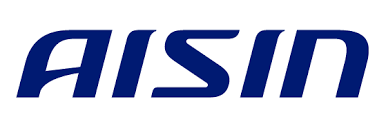
Aisin Seiki, a leading Japanese automotive components manufacturer, reported revenue of approximately $33.51 billion USD in 2024. The company specializes in powertrain systems, chassis components, and body parts, supplying major global automakers. In 2024, Aisin Seiki focused heavily on innovation in hybrid and electric vehicle technologies, supporting the automotive industry’s shift toward sustainability and advanced mobility solutions. With a workforce spread across multiple countries, the company leverages its global manufacturing network to maintain high-quality standards and operational efficiency. Aisin Seiki’s ongoing investments in research and development, combined with strong OEM partnerships, have driven steady revenue growth and reinforced its position in the evolving automotive supply chain.
33. Sompo HoldingsSompo Holdings ($32.96 billion)

Sompo HoldingsSompo Holdings, one of Japan’s leading insurance and financial services groups, reported revenue of approximately $32.96 billion USD in 2024. The company offers a wide range of services, including property and casualty insurance, life insurance, and nursing care services. Sompo has been expanding its global presence through strategic acquisitions and partnerships, particularly in the Asia-Pacific and European markets. The group emphasizes innovation by integrating digital technologies to enhance customer experience and operational efficiency. With a strong commitment to sustainability, Sompo actively promotes environmental, social, and governance (ESG) initiatives, aiming to contribute to a resilient and sustainable society while maintaining solid financial performance.
34. Mazda ($32.92 billion)

Mazda, a renowned Japanese automobile manufacturer, reported revenue of approximately $32.92 billion USD in 2024. Known for its innovative engineering and distinctive design philosophy, Mazda serves millions of customers worldwide with a diverse lineup of vehicles ranging from compact cars to SUVs. The company employs around 40,000 people globally, focusing on efficient production and cutting-edge technology, including advancements in fuel efficiency and electric vehicles. In 2024, Mazda strengthened its financial position through improved sales performance and cost optimization initiatives, while continuing to expand its presence in key markets such as North America and Europe. Mazda’s commitment to sustainability and driving enjoyment remains central to its long-term strategy in a rapidly evolving automotive industry.
35. Subaru ($32.11 billion)

Subaru, a prominent Japanese automaker known for its all-wheel-drive vehicles and boxer engine technology, reported revenue of approximately $32.11 billion USD in 2024. The company serves a loyal customer base worldwide, particularly strong in markets such as the United States and Japan. Subaru employs around 25,000 people globally, focusing on quality, safety, and environmental sustainability. In 2024, Subaru continued to invest in electric and hybrid vehicle development while maintaining solid financial performance through steady sales growth and operational efficiency. The company’s commitment to durability, reliability, and customer satisfaction helps it maintain a competitive edge in the evolving automotive landscape.
36. Mitsubishi Heavy Industries ($31.73 billion)
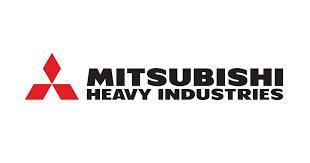
Mitsubishi Heavy Industries (MHI), a diversified Japanese industrial giant, reported revenue of approximately $31.73 billion USD in 2024. The company operates across multiple sectors including aerospace, energy systems, industrial machinery, and defense equipment. MHI employs over 80,000 people worldwide, leveraging advanced engineering and technology to deliver complex solutions to clients ranging from governments to private corporations. In 2024, the company focused on expanding its renewable energy portfolio and developing next-generation infrastructure projects, which contributed to its stable financial performance. Mitsubishi Heavy Industries continues to balance innovation with sustainability initiatives, aiming to support global decarbonization efforts while maintaining strong operational efficiency.
37. Sumitomo Denki Kōgyō ($30.03 billion)

Sumitomo Denki Kōgyō, a key player in Japan’s electrical equipment and machinery sector, reported revenue of approximately $30.03 billion USD in 2024. The company manufactures a broad range of products, including power transmission equipment, automation systems, and industrial motors, serving clients across industries such as energy, manufacturing, and infrastructure. Sumitomo Denki Kōgyō employs around 20,000 people globally and has been advancing its portfolio with innovative solutions to support energy efficiency and smart industrial applications. In 2024, the company strengthened its market position through strategic partnerships and investments in digital technologies, contributing to steady financial growth amid shifting global industrial demands.
38. Takeda Pharmaceutical ($29.97 billion)
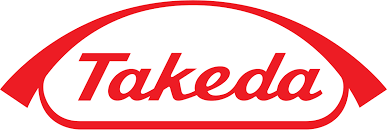
Takeda Pharmaceutical, one of Japan’s largest pharmaceutical companies, reported revenue of approximately $29.97 billion USD in 2024. The company focuses on research and development of innovative medicines in areas such as oncology, gastroenterology, and neuroscience. Takeda employs over 50,000 people worldwide and serves a broad global patient base through its extensive portfolio of prescription drugs and vaccines. In 2024, Takeda made significant progress in expanding its pipeline and strengthening collaborations with biotech firms, driving both scientific advancement and financial growth. The company remains committed to improving patient outcomes while advancing sustainability and ethical practices across its operations
39. Daikin ($29.96 billion)

Daikin, a global leader in air conditioning and refrigeration solutions, reported revenue of approximately $29.96 billion USD in 2024. The company serves millions of customers worldwide with a comprehensive range of HVAC products and services, focusing on energy efficiency and environmental sustainability. Daikin employs around 80,000 people globally and has been investing heavily in smart technologies and eco-friendly refrigerants to reduce the carbon footprint of its products. In 2024, Daikin expanded its market presence in emerging regions while maintaining strong financial performance through innovation and operational excellence. The company is committed to leading the industry’s transition to greener technologies while meeting growing global demand.
40. Mitsubishi Chemical Holdings ($29.92 billion)

Mitsubishi Chemical Holdings, a major player in the global chemical industry, reported revenue of approximately $29.92 billion USD in 2024. The company operates across diverse sectors, including performance materials, healthcare, and industrial chemicals, serving a broad range of industries from automotive to electronics. With a workforce of over 60,000 employees worldwide, Mitsubishi Chemical Holdings focuses on innovation, sustainability, and advanced material development to meet evolving market needs. In 2024, the company strengthened its position through strategic investments in green chemistry and circular economy initiatives, supporting both financial growth and environmental responsibility.
41. NTT Data ($29.77 billion)

NTT Data, a leading global IT services provider based in Japan, reported revenue of approximately $29.77 billion USD in 2024. The company offers a broad range of consulting, system integration, and managed services to clients across industries such as finance, healthcare, and public sector. Employing around 140,000 people worldwide, NTT Data has been accelerating its digital transformation initiatives, including AI, cloud computing, and cybersecurity solutions. In 2024, NTT Data expanded its global footprint through strategic acquisitions and partnerships, reinforcing its position as a trusted technology partner. The company is committed to driving innovation and sustainable growth by leveraging technology to solve complex business challenges.
42. Bridgestone ($29.19 billion)
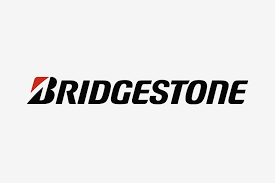
Bridgestone, the world’s largest tire and rubber company, reported revenue of approximately $29.19 billion USD in 2024. The company supplies tires and automotive products to a broad range of customers, including passenger vehicles, commercial trucks, and motorsports. Bridgestone employs over 140,000 people globally and has been investing heavily in advanced materials and sustainable manufacturing processes. In 2024, the company focused on expanding its eco-friendly product lineup and strengthening its global supply chain resilience, contributing to solid financial performance. Bridgestone remains committed to innovation and sustainability as it adapts to the evolving demands of the mobility industry
43. Canon ($28.89 billion)
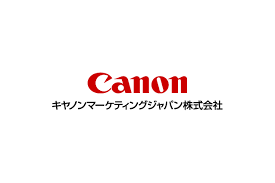
Canon, a global leader in imaging and optical products, reported revenue of approximately $28.89 billion USD in 2024. The company offers a diverse portfolio that includes cameras, printers, medical imaging devices, and industrial equipment. Employing around 180,000 people worldwide, Canon serves a wide range of clients from individual consumers to large enterprises. In 2024, Canon focused on expanding its digital solutions and healthcare imaging segments, driving innovation and revenue growth. The company continues to invest in R&D to maintain its competitive edge in rapidly evolving markets while emphasizing sustainability and operational efficiency.
44. KEPCO ($27.64 billion)

KEPCO (Kansai Electric Power Company), one of Japan’s major electric utility companies, reported revenue of approximately $27.64 billion USD in 2024. The company provides electric power to millions of customers, primarily in the Kansai region, supporting residential, commercial, and industrial sectors. KEPCO employs around 25,000 people and has been actively investing in renewable energy projects, grid modernization, and smart technology to improve energy efficiency and reliability. In 2024, KEPCO made significant strides toward its sustainability goals, including reducing greenhouse gas emissions and expanding its clean energy portfolio, which supported stable financial results in a challenging energy market.
45. Sekisui House ($26.36 billion)
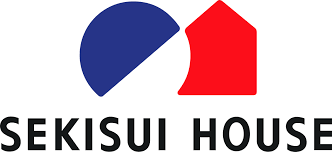
Sekisui House, one of Japan’s largest homebuilders, reported revenue of approximately $26.36 billion USD in 2024. The company specializes in the design, construction, and sale of residential homes, focusing on sustainable and energy-efficient building technologies. Sekisui House employs around 14,000 people and serves a diverse customer base primarily in Japan, with expanding operations in other countries. In 2024, the company emphasized innovation in smart home solutions and green building practices, contributing to steady financial growth. Sekisui House remains committed to creating comfortable, eco-friendly living spaces that meet evolving consumer needs.
46. Komatsu ($26.35 billion)

Komatsu, a global leader in construction and mining equipment manufacturing, reported revenue of approximately $26.35 billion USD in 2024. The company serves a wide range of industries, providing heavy machinery such as excavators, bulldozers, and industrial vehicles. Employing around 63,000 people worldwide, Komatsu focuses on innovation through automation, smart technology, and sustainable manufacturing practices. In 2024, Komatsu strengthened its market position by expanding its product lineup and enhancing after-sales services, contributing to stable financial performance. The company is dedicated to supporting infrastructure development while advancing environmental sustainability.
47. Toyota Industries ($26.14 billion)
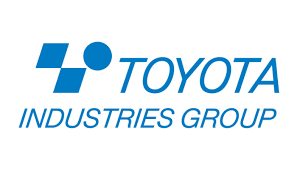
Toyota Industries, a diversified Japanese manufacturer, reported revenue of approximately $26.14 billion USD in 2024. The company produces a wide range of products, including automotive components, forklifts, and logistics systems, serving clients globally across various industries. Employing around 65,000 people worldwide, Toyota Industries focuses on innovation in automation and environmentally friendly technologies. In 2024, the company continued to strengthen its market presence through product development and strategic partnerships, contributing to steady financial growth. Toyota Industries remains committed to enhancing operational efficiency and sustainability in its manufacturing processes.
48. Fujitsu ($25.58 billion)

Fujitsu, a leading Japanese information and communication technology company, reported revenue of approximately $25.58 billion USD in 2024. The company provides a broad range of IT products and services, including cloud computing, cybersecurity, and AI-driven solutions, catering to clients in industries such as finance, healthcare, and manufacturing. Employing around 130,000 people globally, Fujitsu has been focusing on accelerating digital transformation for its customers through innovation and strategic partnerships. In 2024, Fujitsu strengthened its market position by expanding its cloud services and sustainability initiatives, driving steady financial growth while promoting eco-friendly business practices.
49. Chubu Electric Power ($24.61 billion)
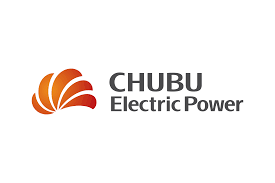
Chubu Electric Power, one of Japan’s largest electric utilities, reported revenue of approximately $24.61 billion USD in 2024. The company supplies electricity to millions of customers primarily in the Chubu region, supporting residential, commercial, and industrial sectors. Employing around 19,000 people, Chubu Electric Power is actively investing in renewable energy sources, grid modernization, and smart energy solutions to enhance efficiency and sustainability. In 2024, the company advanced its efforts to reduce carbon emissions and expand clean energy projects, contributing to stable financial results amid a transitioning energy landscape.
50. NEC Corporation ($23.66 billion)

NEC Corporation (Ticker: 6701.T) is a major Japanese multinational provider of information technology (IT) and network solutions. The company serves a wide array of clients, including governments, enterprises, and telecom operators, with offerings that range from AI-driven security systems and biometrics to 5G infrastructure and cloud computing platforms. NEC plays a key role in Japan’s digital transformation initiatives and is involved in smart city projects globally.
As of 2024, NEC reported annual revenue of approximately $23.66 billion. The company employs around 117,000 people worldwide, contributing to its strong global R&D and implementation capacity. Financially, NEC continues to maintain steady profitability, with its operating income margin hovering near 5%, supported by its high-value contracts and long-term government partnerships. In recent years, NEC has strategically expanded its global presence through acquisitions and partnerships, including its collaboration with major European and Asian telecom providers for 5G rollout and its work on digital identity platforms with various governments
51. Mizuho Financial Group ($23.59 billion)

Mizuho Financial Group (Ticker: MFG) is one of Japan’s premier financial institutions, providing a full spectrum of banking services including retail and corporate banking, trust banking, asset management, and investment banking. Headquartered in Tokyo, Mizuho serves a diverse client base both in Japan and globally. The group plays a central role in Japan’s financial system, serving over 20 million retail customers and approximately 70% of companies listed on the Tokyo Stock Exchange. In the fiscal year ending March 31, 2024, Mizuho reported revenue of approximately $23.59 billion (¥3.12 trillion), with a net profit forecast of ¥820 billion (around $5.26 billion), representing a 20.7% increase from the previous year. The company maintains a strong financial position, with a market capitalization of about $73.27 billion. Mizuho employs approximately 65,218 people worldwide, supporting operations in all 47 prefectures of Japan and across nearly 40 countries and regions through a network of 109 international offices.
52. Recruit Holdings ($23.31 billion)

Recruit Holdings Co., Ltd. (Ticker: 6098.T) is a Tokyo-based global leader in HR technology and staffing, best known for platforms like Indeed and Glassdoor. Operating through HR Technology, Matching & Solutions, and Staffing segments, the company generates over half of its revenue internationally. In the fiscal year ending March 2025, Recruit posted $23.31 billion in revenue and $2.67 billion in net income, with a strong EBITDA margin of 22.8%. It employs around 58,493 people and has a market cap of nearly $88 billion.
Recruit continues to invest in AI-driven job matching and global expansion, reinforcing its role as a major player in the future of work.
53. Isuzu Motors ($22.5 billion)

Isuzu Motors Ltd. is a Japanese multinational manufacturer specializing in commercial vehicles and diesel engines. Headquartered in Yokohama, the company produces a range of vehicles, including light-, medium-, and heavy-duty trucks, buses, and industrial-use diesel engines. Notably, its D-MAX pickup truck enjoys significant popularity in markets like Thailand. In the fiscal year ending March 31, 2025, Isuzu reported consolidated revenue of approximately ¥3.21 trillion (around $22.5 billion USD), with a net income of ¥134.4 billion (approximately $940 million USD). The company employs about 45,000 people worldwide. Isuzu maintains a global presence through various subsidiaries and joint ventures, including operations in Thailand, India, and South Africa. The company continues to focus on innovation and sustainability, contributing to the development of local communities and society by supporting the operation of vehicles throughout their life cycles
54. Fast Retailing ($20.67 billion)
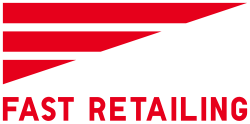
Fast Retailing Co. is a Japanese multinational retail holding company based in Yamaguchi, primarily known for its global apparel brand Uniqlo, along with GU, Theory, J Brand, and Princesse Tam-Tam. With a strong presence across Asia, Europe, and North America, the company has become a major player in the global fashion retail industry. For the fiscal year ending August 31, 2024, Fast Retailing posted consolidated revenue of approximately ¥3.10 trillion ($20.67 billion USD), reflecting a 12.2% year-over-year growth. The company also recorded an operating profit of ¥500.9 billion ($3.35 billion USD), up 31.4%, and a net income of ¥372.0 billion (~$2.49 billion USD), marking a 25.6% increase from the prior year.
55. Kubota Corporation ($20.46 billion)
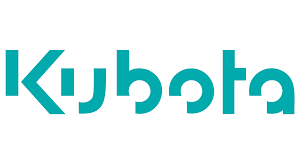
Kubota Corporation is a Japanese multinational company headquartered in Osaka, specializing in agricultural machinery, construction equipment, and water treatment systems. With operations spanning over 120 countries, Kubota has established a strong global presence, particularly in North America, Europe, and Asia, supported by manufacturing facilities in Japan, the U.S., Germany, and Thailand. In the fiscal year ending December 31, 2024, Kubota reported revenue of approximately ¥3.02 trillion (around $20.46 billion USD), with an operating profit of ¥315.6 billion ($2.11 billion USD).The company employed about 52,090 people worldwide, reflecting its extensive operations. Kubota is investing heavily in research and development, committing ¥500 billion (~$3.35 billion USD) over five years toward advanced agricultural technologies, sustainability initiatives, and innovations such as hydrogen combustion engines and autonomous machinery. These strategic efforts reinforce Kubota’s position as a leader in the agricultural and industrial equipment sectors while driving long-term growth and environmental responsibility.
56. Fujifilm Holdings Corporation ($20.19 billion)
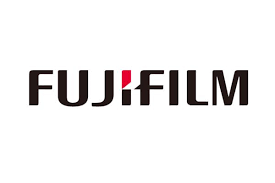
Fujifilm Holdings Corporation is a diversified Japanese multinational conglomerate headquartered in Tokyo, known for its evolution from photographic films into sectors such as digital imaging, medical imaging, biotechnology, document solutions, and cosmetics. Operating in over 200 countries, Fujifilm maintains a strong global presence with extensive manufacturing and R&D facilities across Asia, North America, and Europe. For the fiscal year ending March 31, 2025, Fujifilm reported revenue of approximately ¥3,195.8 billion ($20.19 billion USD), with an operating income of ¥330.2 billion ($2.11 billion USD) and net income attributable to shareholders of ¥261.0 billion (~$1.66 billion USD). The company employs about 73,906 people worldwide.
57. Japan Tobacco ($20.00 billion)
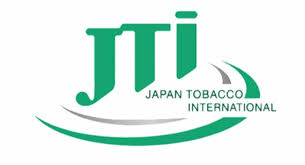
Japan Tobacco, one of Japan’s leading tobacco companies, reported revenue of approximately $20.00 billion USD in 2024. The company produces and markets a wide range of tobacco products, including cigarettes, cigars, and smokeless tobacco, serving millions of customers worldwide. Japan Tobacco employs over 40,000 people globally and operates in various international markets, with a strong presence in Asia, Europe, and the Americas. In 2024, the company focused on expanding its product portfolio with reduced-risk alternatives and strengthened its supply chain resilience, supporting both financial performance and sustainability initiatives. Japan Tobacco remains dedicated to innovation and responsible business practices while adapting to changing consumer preferences and regulatory environments.
58. Asahi Group ($19.25 billion)
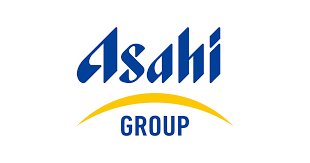
Asahi Group, a major Japanese beverage company, reported revenue of approximately $19.25 billion USD in 2024. The company produces a wide range of alcoholic and non-alcoholic beverages, including well-known brands like Asahi Super Dry, Peroni, and Pilsner Urquell. Asahi operates globally, employing over 28,000 people and serving customers in more than 100 countries. In 2024, the company focused on premiumization strategies and expanding its presence in emerging markets, driving both financial growth and sustainability efforts. Asahi remains committed to innovation and responsible business practices while adapting to evolving consumer preferences worldwide.
59. Tohoku Electric Power ($19.19 billion)

Tohoku Electric Power, a major Japanese electric utility company, reported revenue of approximately $19.19 billion USD in 2024. Serving around 7.6 million customers in the Tōhoku and Niigata regions, the company plays a critical role in Japan’s energy supply. Despite a slight revenue decline due to lower fuel prices, Tohoku Electric Power is focusing on enhancing energy security by restarting nuclear operations and expanding renewable energy sources. Employing over 24,000 people, the company is committed to improving grid stability and operational efficiency while advancing its sustainability goals in an evolving energy market.
60. Mitsubishi Motors ($19.03 billion)

Mitsubishi Motors, a leading Japanese automobile manufacturer, reported revenue of approximately $19.03 billion USD in 2024. The company produces a wide range of vehicles and is part of the Renault–Nissan–Mitsubishi Alliance, leveraging strategic partnerships to enhance its global footprint. In 2024, Mitsubishi Motors sold over one million vehicles worldwide, with notable growth in North America where sales increased by 25.8%. The company is investing heavily in electric vehicle development and innovation to remain competitive in the rapidly evolving automotive industry. Employing thousands globally, Mitsubishi Motors is committed to sustainability and expanding its market presence through advanced technology and alliance collaboration.
61. Asahi Kase ($18.99 billion)

Asahi Kasei, a diversified Japanese multinational company, reported revenue of approximately $18.99 billion USD in 2024. Operating across materials, homes, and healthcare sectors, the company is known for innovations in chemicals, synthetic fibers, medical devices, and housing solutions. With nearly 50,000 employees worldwide, Asahi Kasei focuses on sustainability and advanced technologies such as green hydrogen production and semiconductor materials. In 2024, the company was recognized for its leadership in semiconductor packaging, reflecting its commitment to innovation and strong market performance.
62. East Japan Railway Company ($18.62 billion)

East Japan Railway Company (JR East), a major passenger railway company in Japan, reported revenue of approximately $18.62 billion USD for the fiscal year, 2024.
Headquartered in Shibuya, Tokyo, JR East operates an extensive network of rail services across the Kanto and Tōhoku regions, including the Tōhoku, Jōetsu, Hokuriku, Yamagata, and Akita Shinkansen lines.
The company employs approximately 73,000 people and serves millions of passengers daily.
In addition to its core railway operations, JR East is involved in various businesses, including retail, real estate, and IT services, contributing to its diversified revenue streams.
JR East is listed on the Tokyo Stock Exchange under the ticker symbol 9020.T and is a constituent of the Nikkei 225 index.
63. Japan Post Insurance ($18.57 billion)

Japan Post Insurance Co., Ltd., a leading Japanese life insurance provider, reported revenue of approximately $18.57 billion USD for the fiscal year ending March 31, 2024. The company is a subsidiary of Japan Post Holdings, which owns about 64.5% of its shares. 2024, Japan Post Insurance employed approximately 19,092 people.
64. Kajima Corporation ($18.17 billion)

Kajima Corporation is one of Japan’s leading construction and engineering companies, reporting revenue of approximately $18.17 billion USD for the fiscal year ending March 31, 2024. Employing nearly 20,000 people globally, Kajima is renowned for its expertise in civil engineering, building construction, real estate development, and architectural design. The company has contributed to iconic projects such as the Tokyo Skytree and the Akashi Kaikyō Bridge, showcasing its engineering prowess. Kajima is also committed to sustainability through its “Triple Zero 2050” vision, aiming for zero carbon emissions, zero waste, and zero impact on nature. This strategic focus supports Kajima’s role in building a more sustainable society while maintaining steady financial performance.
65. Tokyo Gas ($18.15 billion)

Tokyo Gas Co., Ltd. is Japan’s largest natural gas utility, reporting revenue of approximately $18.15 billion USD for the fiscal year, 2024. Serving over 11 million customers in Tokyo and the surrounding Kanto region, Tokyo Gas provides city gas, electricity, and various energy services. The company employs around 15,500 people and has expanded its operations beyond gas supply to include electricity provision and international energy ventures, including acquisitions in the U.S. market. Committed to environmental sustainability.
66. Kobe Steel ($17.33 billion)

Kobe Steel, Ltd., also known by its brand name Kobelco, is a major Japanese steel manufacturer headquartered in Kobe. For the fiscal year, 2024, the company reported revenue of approximately $17.33 billion USD. Kobe Steel employed 38,050 people on a consolidated basis. The company operates in various segments, including steel and aluminum, advanced materials, welding, machinery, engineering, construction machinery, and electric power. Notably, Kobe Steel is a member of the Mizuho keiretsu and is listed on the Tokyo Stock Exchange under the ticker symbol 5406. In recent years, the company has been focusing on fields other than steel, such as aluminum, machinery, and electric power, aiming to transform from being primarily a steelmaker to a diversified manufacturer.
67. Yamaha Motor ($16.81 billion)
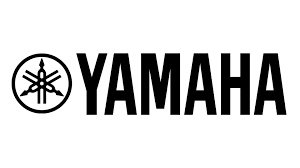
Yamaha Motor Co., Ltd. is a global leader in mobility and engineering solutions, reporting revenue of approximately $16.81 billion USD (¥2.58 trillion) for the fiscal year ending December 31, 2024, reflecting a 6.7% year-over-year increase. The company employs around 54,206 people worldwide. Yamaha Motor's diverse portfolio encompasses motorcycles, marine products, robotics, and financial services. In 2024, the company experienced strong sales growth in emerging markets like Brazil and India, particularly in its core motorcycle segment. Despite revenue growth, net income declined by 31.8% to ¥108.1 billion due to increased labor costs, structural reforms, and impairment losses in specific business areas. With a global footprint spanning over 180 countries, Yamaha Motor generates more than 90% of its consolidated net sales from international markets. The company continues to invest in innovation and sustainability, aiming to enhance its product offerings and operational efficiency.
68. Toray Industries ($16.81 billion)

Toray Industries, Inc. is a leading Japanese multinational corporation specializing in advanced materials, reporting revenue of approximately $16.81 billion USD (¥2.46 trillion) for the fiscal year, 2024. The company employs around 48,140 people globally and operates across five core business segments: Fibers & Textiles, Performance Chemicals, Carbon Fiber Composite Materials, Environment & Engineering, and Life Science. Toray is renowned as a global leader in carbon fiber production, supplying critical materials for industries such as aerospace and automotive. Despite facing challenges in some markets—particularly in demand for wind turbine blade applications—the company achieved a 6.9% increase in core operating income, totaling ¥102.6 billion. With continued investment in sustainability and innovation, Toray remains committed to addressing global environmental and societal needs while maintaining strong financial performance.
69. Sumitomo Chemical ($16.68 billion)

Sumitomo Chemical Co., Ltd., a leading Japanese chemical manufacturer, reported revenue of approximately $16.68 billion in fiscal year 2024. The company, which employs around 34,743 people globally, operates in a wide range of sectors including petrochemicals, energy, IT-related chemicals, health and crop sciences, and pharmaceuticals. Despite its diversified portfolio, Sumitomo Chemical experienced significant financial challenges in 2024, posting a net loss of ¥465.4 billion (roughly $3.04 billion USD), compared to a loss of ¥46.9 billion the previous year. Operationally, the company’s EBITDA was negative ¥332.5 billion, highlighting difficulties in core business segments.
70. Shin-Etsu Chemical ($16.48 billion)

Shin-Etsu Chemical Co., Ltd. is Japan’s largest chemical company and a global leader in materials such as polyvinyl chloride (PVC), semiconductor silicon, and functional chemicals. Headquartered in Tokyo, the company operates in 16 countries and serves major industries including semiconductors, construction, automotive, and electronics. Its key subsidiaries include Shintech in the United States, which is the largest PVC producer in the U.S. market.
In the fiscal year 2024, Shin-Etsu Chemical reported revenue of approximately ¥2.41 trillion (around $16.48 billion USD), marking a 14% decrease from the previous year. Despite the drop in revenue, the company maintained strong profitability, with a net income of ¥520.1 billion (roughly $3.55 billion USD). Operating income reached ¥735 billion, reflecting a 4.8% year-over-year increase—highlighting the company’s efficient cost management and strong margins. The company employs approximately 26,000 people globally.
71. Sojitz Corporation ($16.46 billion)
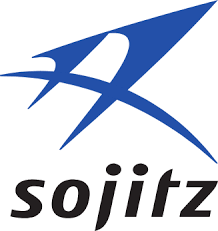
Sojitz Corporation reported revenue of approximately $16.46 billion USD in fiscal year 2024, reflecting a slight decline amid global market challenges but supported by its diversified portfolio across trading, manufacturing, and services. The company operates through seven key business segments, including automotive, aerospace, infrastructure, metals and minerals, chemicals, consumer industries, and retail. Its strategic acquisition of the U.S. sushi takeout chain Sushi Avenue strengthened its position in the global food sector, targeting growth in seafood business profits by 2027. With around 25,000 employees worldwide and an extensive network spanning over 50 countries, Sojitz leverages its broad industry reach and global presence to drive sustainable growth. The company continues to focus on expanding its consumer and infrastructure businesses while maintaining solid financial fundamentals, positioning itself as a resilient leader among Japan’s sogo shosha.
72. Nippon Yūsen Kabushiki Kaisha ($16.29 billion)

Nippon Yūsen Kabushiki Kaisha (NYK Line) reported revenue of approximately $16.29 billion USD in fiscal year 2024, reflecting a moderate decline due to lower container shipping freight rates amid global economic uncertainties. Despite this, the company maintained strong profitability driven by its diversified operations spanning container shipping, logistics, automotive transport, and LNG carriers. NYK Line operates a fleet of over 820 vessels and holds a major stake in Ocean Network Express (ONE), a leading global container shipping alliance. The logistics and automotive segments experienced growth due to increased cargo handling volumes. With its extensive global network and around 35,000 employees worldwide, NYK Line continues to focus on operational efficiency and sustainability initiatives, positioning itself as a resilient leader in the maritime transport and logistics industry
73. Mitsui Fudosan ($16.22 billion)

Mitsui Fudosan reported revenue of approximately $16.22 billion USD in fiscal year 2024, driven by strong growth across its diversified real estate portfolio including office buildings, residential developments, retail, hotels, and logistics facilities. The company saw particularly robust performance in its leasing and property sales segments, supported by increased demand in both domestic and international markets. Mitsui Fudosan has expanded its global footprint with significant investments in North America and Europe, complementing its leadership position in Japan. With around 14,000 employees, the company combines large-scale development capabilities with a focus on sustainable urban development and asset management. Strategic initiatives in hospitality and facility operations have further boosted profitability, positioning Mitsui Fudosan as a key player in the global real estate industry.
74. Nidec ($16.02 billion)

Nidec reported revenue of approximately $16.02 billion USD in fiscal year 2024, driven by its diversified portfolio of electric motor technologies serving automotive, industrial, appliance, and precision equipment markets. The company has a global workforce of about 109,000 employees and operates through over 300 group companies. Despite challenges in the automotive segment, particularly related to competition in the Chinese EV market, Nidec expanded its AI-related business, notably in water-cooling modules for generative AI data centers, targeting rapid growth. Its broad product range and strategic investments in innovation continue to strengthen its leadership in the global motor industry, positioning Nidec as a key player in the evolving electrification and automation sectors.
75. Ricoh ($16.01 billion)
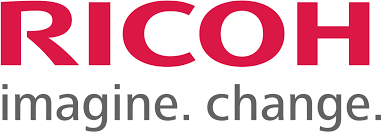
Ricoh Company reported revenue of approximately $16.01 billion USD in fiscal year 2024, supported by strong growth in its office services, commercial printing, and digital product segments. The company serves around 1.4 million customers worldwide across approximately 200 countries and employs about 78,600 people globally. Ricoh has focused on expanding its recurring revenue streams, achieving a notable increase in subscription-based services within its office solutions division. Its strategic investments in digital transformation and sustainable technologies have further strengthened its market position. With a robust global footprint and commitment to innovation, Ricoh continues to be a leading player in the imaging and electronics industry.
76. Obayashi Corporation ($15.85 billion)

Obayashi Corporation reported revenue of approximately $15.85 billion USD in fiscal year 2024, driven by strong performance in both domestic and international construction projects. Obayashi employs over 9,000 people globally and operates through 86 subsidiaries and 26 affiliates across Japan, North America, Europe, and Southeast Asia. Despite challenges in North American markets due to rising interest rates, the company maintains a robust project pipeline and continues to focus on sustainability and innovation in construction technologies. With a strategic emphasis on urban development and infrastructure modernization, Obayashi remains a prominent player in the global construction industry.
77. Sharp Corporation ($15.84 billion)

Sharp Corporation reported revenue of approximately $15.84 billion USD in fiscal year 2024, a decline from the previous year. This improvement was attributed to increased sales in its Brand Business segments, structural reforms in the Device Business, and progress in its Asset Light Initiatives. Sharp employs approximately 46,000 people globally and operates through various subsidiaries, including Dynabook. The company continues to focus on innovation in consumer electronics, display technologies, and IoT solutions, aiming to strengthen its position in the global market.
78. T&D Holdings ($15.73 billion)
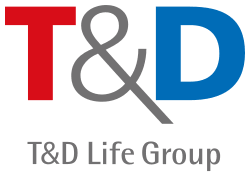
T&D Holdings reported revenue of approximately $15.73 billion USD in fiscal year 2024, driven by strong performance across its life insurance subsidiaries, including Taiyo Life, Daido Life, and T&D Financial Life. T&D Holdings employs approximately 20,400 people and continues to expand its presence in the Japanese insurance market. Strategic initiatives, such as an equity buyback plan and investments in European insurance assets, underscore its commitment to enhancing shareholder value and diversifying its portfolio. With a focus on sustainable growth and operational efficiency, T&D Holdings remains a leading player in the Japanese insurance industry
79. Nippon Express ($15.64 billion)

Nippon Express Holdings reported revenue of approximately $15.64 billion USD in fiscal year 2024, reflecting a 15.1% increase from the previous year. The company achieved a net income of ¥31.73 billion, a decrease of 14.4% year-over-year. Despite this decline, Nippon Express continues to expand its global logistics network, with operations in over 100 countries and regions. The company employs approximately 76,390 people worldwide and remains a key player in the global logistics industry.
80. INPEX Corporation ($15.13 billion)

INPEX Corporation reported revenue of approximately $15.13 billion USD in fiscal year 2024, reflecting steady growth driven by its global oil and gas exploration and production activities. The company maintains a strong operational focus on major projects such as the Ichthys LNG development in Australia, which continues to contribute significantly to its output. With around 2,100 employees worldwide, INPEX is actively pursuing strategic investments in renewable energy and carbon capture technologies, positioning itself toward a more sustainable energy future. Its ongoing commitment to innovation and environmental responsibility supports its role as a key player in the global energy industry.
81. Kirin Holdings ($15.03 billion)
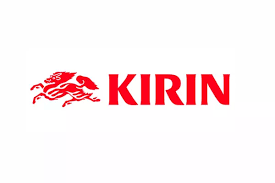
Kirin Holdings reported revenue of approximately $15.03 billion USD in fiscal year 2024, reflecting solid growth driven by its diverse operations in beverages, health science, and pharmaceuticals. The company employs around 30,500 people worldwide and operates through key subsidiaries such as Kirin Brewery Company, Kirin Beverage Company, and Kyowa Kirin. Kirin has expanded its focus on health science products, including its LC-Plasma postbiotic line, which generated strong sales growth. Strategic investments in sustainability and global market expansion continue to position Kirin as a leading player in the food and beverage industry with a growing footprint in health-related sectors.
82. Otsuka ($14.47 billion)
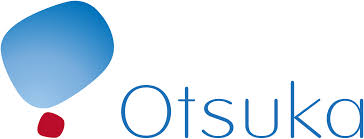
Otsuka Holdings reported revenue of approximately $14.47 billion USD in fiscal year 2024, reflecting strong growth driven by its pharmaceutical and nutraceutical businesses. The company employs approximately 35,340 people worldwide and operates through major subsidiaries including Otsuka Pharmaceutical, Otsuka Foods, and Otsuka Chemical. Notable contributions came from its central nervous system and oncology product lines, along with steady performance in the consumer health and functional beverages segments. Otsuka continues to prioritize innovation, sustainability, and global expansion as it strengthens its position across both healthcare and lifestyle sectors.
83. TDK ($14.36 billion)
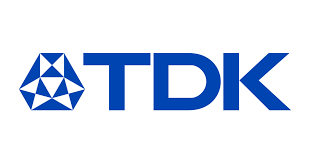
TDK Corporation reported revenue of approximately $14.36 billion USD in fiscal year 2024, reflecting a 3.5% decrease from the previous year, primarily due to foreign exchange fluctuations and softer demand in certain markets . The company employs nearly 100,000 people globally, with approximately 90% based outside Japan . TDK's diversified portfolio includes passive components, sensors, magnetic application products, and energy devices, serving clients across the automotive, industrial, and ICT sectors. The company continues to invest in innovation and sustainability, positioning itself as a leader in the global electronics industry.
84. Rakuten Group ($14.31 billion)
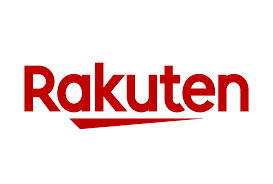
Rakuten Group reported revenue of approximately $14.31 billion USD in 2024, reflecting strong growth driven by its diversified operations in e-commerce, fintech, and mobile communications. The company saw particularly robust performance in its fintech segment, including Rakuten Card and Rakuten Securities, which benefited from increased consumer adoption and digital financial services. Its mobile division also gained momentum with a growing subscriber base, while the internet services segment remained stable with continued global usage of platforms like Rakuten Viber and Rakuten Kobo. Employing around 29,300 people worldwide, Rakuten is steadily expanding its international presence, including significant investments in India. Its commitment to innovation and ecosystem-based service integration continues to position the company as a major digital powerhouse in Japan and beyond.
85. Osaka Gas ($14.20 billion)

Osaka Gas Co., Ltd. reported revenue of approximately $14.20 billion USD in fiscal year 2024, reflecting a modest decline primarily due to lower city gas unit prices and decreased LNG prices in its domestic energy segment . Despite this, the company achieved significant growth in operating profit, driven by reduced LNG procurement costs and favorable time-lag effects between raw material cost fluctuations and their reflection in selling prices. Employing around 21,159 people globally, Osaka Gas serves a diverse client base across residential, commercial, and industrial sectors.
86. ANA Holdings ($14.02 billion)
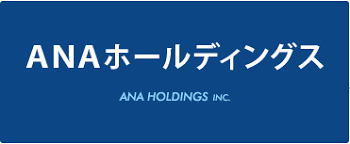
ANA Holdings reported revenue of approximately $14.02 billion USD in fiscal year 2024, reflecting a 10% increase year-over-year, driven by the continued recovery in global air travel and strong demand across both domestic and international routes . The company saw particular strength in its international passenger segment, which reached a record high of ¥805.5 billion, bolstered by the launch of new routes from Tokyo Haneda to Milan, Stockholm, and Istanbul . ANA also benefited from robust leisure demand on domestic routes, achieving a record 77% seat utilization in the third quarter . With approximately 42,000 employees worldwide , the company continues to focus on expanding its global network and enhancing customer experience, positioning itself as a leading player in the aviation industry.
87. Pan Pacific International Holdings ($13.93 billion)

Pan Pacific International Holdings reported revenue of approximately $13.93 billion USD in fiscal year 2024, reflecting an 8.2% increase from the previous year. This growth was driven by strong performance in its discount retail operations, including Don Quijote and UNY stores, and a significant rebound in inbound tax-free sales. The company achieved record operating profit, marking 35 consecutive years of sales and operating profit growth. Pan Pacific International Holdings employs approximately 17,168 people globally and continues to expand its presence in Japan and overseas markets, focusing on enhancing customer experience and operational efficiency. Strategic initiatives, such as the expansion of private brand and OEM products, investments in human resources, and the opening of new stores, underscore the company's commitment to sustainable growth and innovation in the retail sector.
88. Kyocera Corporation ($13.67 billion)

Kyocera Corporation reported revenue of approximately $13.67 billion USD in fiscal year 2024, reflecting a slight decline of 1.0% from the previous year. The company experienced challenges in its Core Components and Electronic Components segments, primarily due to decreased demand in the information and communication infrastructure markets and ongoing inventory adjustments. Conversely, the Solutions Business, encompassing Document Solutions and Communications Units, demonstrated resilience, achieving a 3.0% increase in sales revenue. Kyocera employs approximately 81,209 people globally and continues to focus on innovation and sustainable growth, with strategic investments aimed at enhancing its product offerings and expanding its global footprint.
89. Shimizu Corporation ($13.67 billion)

Shimizu Corporation reported revenue of approximately $13.67 billion USD in fiscal year 2024, reflecting a 3.7% increase from the previous year. This growth was driven by strong performance in its construction business, including architectural construction, civil engineering, and related services. The company employs around 20,515 people globally and continues to expand its presence in Japan and overseas markets, focusing on enhancing project management capabilities and operational efficiency. Strategic initiatives, such as investments in sustainable construction practices and the development of innovative building technologies, underscore Shimizu's commitment to long-term growth and leadership in the construction industry.
90. AGC Inc ($13.63 billion)

AGC Inc. reported revenue of approximately $13.63 billion USD in fiscal year 2024, reflecting a 2.4% increase from the previous year. This growth was primarily driven by strong performance in the Electronics and Chemicals segments. The Electronics segment experienced a notable year-over-year increase in sales, fueled by higher demand for semiconductor-related materials and optoelectronic products. The Chemicals segment also saw rising sales, supported by increased demand for performance chemicals and favorable foreign exchange effects.
91. Japan Post Bank ($13.11 billion)

Japan Post Bank reported revenue of approximately $13.11 billion USD in fiscal year 2024, reflecting a 5.6% increase from the previous year. This growth was driven by higher interest income and improved investment returns amid a rising interest rate environment. The bank’s net income rose significantly, with the profit margin improving to 24% from 22% in the prior year. Japan Post Bank employs approximately 11,419 people and continues to focus on enhancing its digital banking services and expanding its investment portfolio to drive sustainable growth.
92. JTEKT Corporation ($12.90 billion)

JTEKT Corporation reported revenue of approximately $12.90 billion USD in fiscal year 2024, reflecting a 12.7% increase from the previous year. This growth was driven by the easing of COVID-19 impacts, recovery from semiconductor shortages, and favorable exchange rates. The company experienced increased business profit due to steady cost reduction activities and investments for future growth, despite challenges in the market environment. JTEKT employs a significant global workforce and continues to focus on strategic investments in research and development to enhance its product offerings in automotive components, bearings, and machine tools. The company's commitment to innovation and operational efficiency positions it for sustained growth in the competitive manufacturing sector.
93. Tokyo Electron ($12.47 billion)
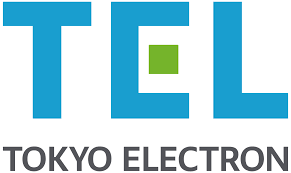
Tokyo Electron reported revenue of approximately $12.47 billion USD in fiscal year 2024, reflecting a 17.1% decrease from the previous year. This decline was primarily due to a cyclical slowdown in the semiconductor equipment industry, leading to reduced capital expenditures by chip manufacturers. Despite the revenue drop, the company maintained strong profitability, with net income increasing by 49.5% year-over-year, driven by operational efficiencies and favorable exchange rates. Tokyo Electron employs approximately 15,000 people globally and continues to invest in research and development to support next-generation semiconductor manufacturing technologies. The company remains a key supplier of equipment for fabricating integrated circuits, flat panel displays, and photovoltaic cells, reinforcing its position as a leader in the semiconductor equipment industry.
94. LY Corporation ($12.38 billion)

LY Corporation reported revenue of approximately $12.38 billion USD in fiscal year 2024, reflecting a slight decline of 1.3% compared to the previous year. This decrease was primarily driven by challenges in its advertising and e-commerce segments, particularly within the LINE platform. Despite these hurdles, the company achieved record-high adjusted EBITDA, demonstrating strong operational efficiency. LY Corporation employs around 28,196 people and is focusing on strategic investments in artificial intelligence and generative AI to enhance user engagement and streamline operations. The company is also exploring opportunities in the U.S. market to diversify its investor base and increase global presence. With integrated services such as LINE, Yahoo! JAPAN, and PayPay, LY Corporation continues to strengthen its position in the Japanese internet services sector.
95. ORIX Corporation ($12.26 billion)
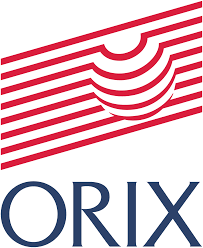
ORIX Corporation reported revenue of approximately $12.26 billion USD for the fiscal year 2024, showing a slight decrease from the previous year. This decline was mainly due to reduced finance revenues and lower gains on investment securities and dividends, partially offset by growth in operating lease revenues and services income. Despite the revenue drop, ORIX achieved a 2% increase in net income, driven by higher equity income from investments and gains on sales of subsidiaries. Employing over 32,000 people worldwide, ORIX continues to focus on strategic investments in renewable energy, real estate, and financial services to drive sustainable growth and enhance shareholder value.
96. Yamato Holdings ($12.02 billion)

Yamato Holdings reported revenue of approximately $12.02 billion USD in fiscal year 2024, reflecting a 2.3% decrease from the previous year. This decline was primarily due to reduced demand in contract logistics and post-box delivery services, despite growth in cross-border and business-to-business e-commerce volumes. In response, the company has invested in digital transformation and infrastructure optimization, including consolidating delivery facilities, outsourcing mailbox delivery to Japan Post, and developing advanced IT systems to boost operational efficiency. With around 177,430 employees, Yamato Holdings is also expanding its value-added services, such as EV Life Cycle Services, to support sustainable growth and enhance customer value.
97. Taisei Corporation ($12.02 billion)
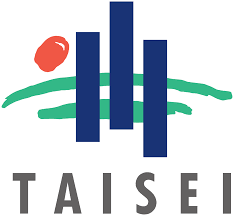
Taisei Corporation reported revenue of approximately $12.02 billion USD in fiscal year 2024, reflecting a 22.7% increase from the previous year. This growth was driven by strong performance across all segments, including civil engineering, building construction, and real estate development. Operating income surged 353.8% to ¥120.1 billion (approximately $850 million USD), while net income attributable to owners of the parent rose 207.5% to ¥123.8 billion (about $880 million USD), reflecting improved profit margins and a turnaround in extraordinary gains .The company employs approximately 16,280 individuals and continues to focus on strategic investments in infrastructure and sustainable development projects to drive future growth .
98. Daito Trust Construction ($11.80 billion)
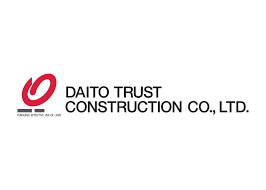
Daito Trust Construction reported revenue of approximately $11.80 billion USD for fiscal year 2024, marking a 2.5% decrease from the previous year. The decline was mainly due to softer demand in its core rental housing and real estate development segments amid a competitive market environment. In response, the company has accelerated digital transformation efforts and infrastructure improvements to enhance operational efficiency. Employing around 14,500 people, Daito Trust Construction continues to focus on expanding its portfolio of value-added housing services and sustainable development initiatives to drive long-term growth and meet evolving customer needs.
99. Central Japan Railway Company ($11.67 billion)

Central Japan Railway Company (JR Central) reported revenue of approximately $11.67 billion USD for the fiscal year ending March 31, 2024, reflecting a 22.15% increase from the previous year. This growth was driven by a strong recovery in passenger demand across its Tōkaidō Shinkansen and regional rail services, alongside increased revenues from its real estate and retail operations. The company achieved net income of approximately $2.55 billion USD, supported by efficient cost management and expanded business segments. Employing around 29,282 people, JR Central continues to invest heavily in infrastructure and technology, including the development of the Chūō Shinkansen maglev line, aiming to enhance service quality and maintain its leadership in Japan’s high-speed rail industry.
100. Oji Holdings Corporation ($11.58 billion)

Oji Holdings Corporation reported revenue of approximately $11.58 billion USD for the fiscal year 2024, reflecting a slight decrease of 0.6% compared to the previous year. This decline was mainly due to increased distribution and personnel costs, which affected operating income despite higher sales volumes. The company achieved net income of about $346 million USD, supported by ongoing efforts to improve efficiency and product innovation. Employing around 38,300 people, Oji Holdings continues to invest strategically in sustainable forestry, advanced packaging solutions, and functional materials to drive long-term growth and strengthen its market position globally.
